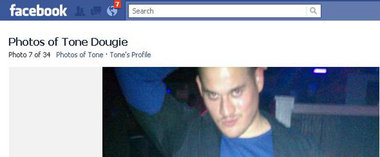Supreme Court Facebook Ruling Weighs Threats Against First Amendment
Does free speech include the right to make seemingly criminal threats on the internet? The Supreme Court has elected to weigh in on the case of Anthony Elonis, a man who in 2010 made several posts indicating violent intent. Elonis made posts to Facebook which he claims were his artistic expression and a way to vent his frustration over his home and work life. It seems reasonable enough, but reading the posts, it’s easy to see why the subjects felt threatened.

In regards to his wife, Elonis wrote:
There’s one way to love you but a thousand ways to kill you. I’m not going to rest until your body is a mess, soaked in blood and dying from all the little cuts.
Elonis later lost his job at a Pennsylvania amusement park, posting:
Someone once told me that I was a firecracker. Nah, I’m a nuclear bomb and Dorney Park just (messed around) with the timer. … y’all haven’t heard the last of Anthony Elonis.
His former employer then contacted the FBI. After a visit from the authorities, Anthony unflinchingly reflected:
Little agent lady stood so close, took all the strength I had not to turn the (woman) ghost. Pull my knife, flick my wrist and slit her throat.
Elonis was convicted, after the 2011 court case, to 44 months of jail-time. Despite his multitude of appeals and petitions suggesting that he should be protected by his First Amendment rights, Elonis remained in prison. The Supreme Court intends to revisit the case’s verdict, and as such, outline when officials should draw the line on free speech on the web.
